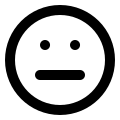Guinea
République de Guinée Republic of Guinea Guinea | |||||
|---|---|---|---|---|---|
| |||||
| Anthem: (We want) Freedom | |||||
 | |||||
| Capital | Conakry | ||||
| Government | Military junta | ||||
| Area | About as big as Oregon | ||||
| Major exports | |||||
Guinea, also known as Guinea-Conakry and formerly French Guinea, is a coastal country in Western Africa located above Sierra Leone and below Senegal and Guinea-Bissau. The majority of its residents are Islamic and speak French. Coups d'état are the national pastime, with a government about as stable as Polonium-210.
Name[edit]
During the era in which imperial colonization was fashionable among big European countries, it was also fashionable to carve out a colony along the Bay of Guinea and refer to it simply as "Guinea". After dozens of letter carriers walked off the job, the French began to refer to theirs as French Guinea (now Guinea-Conakry after its capital, Conakry), like the Portuguese one, Guinea-Bissau. Spanish Guinea is now Equatorial Guinea, not because its capital is called Equatorial; that's just a line that runs through it. There was also "None-of-the-Above Guinea", which was not only renamed Papua New Guinea but did not want any part of "the Africa thing" and removed itself to a location near Australia.
The situation is comparable to the United States, in which the Louisiana Purchase was a lot more than Louisiana. Fortunately, the eventual different pieces got state names of their own, and did not have to be referred to as Louisiana-Little Rock, Louisiana-Jefferson City, and so on. This is because it takes much less provocation to make an American letter carrier quit.
History[edit]
Various empires claimed during the Middle Ages the territory now known as Guinea. The So-So Empire flourished in the 12th and 13th centuries, until the Above-par Empire and the Actually Pretty Good Empire came into power some time after.
Guinea was colonized by France in the 1890s, whereupon French was declared the only official language (rendering strictly unofficial those Guineans who grew up learning the two dozen other local languages). In 1958 Charles de Gaulle offered Guinea more freedom under French rule or full independence. Guinea chose independence, and the French spited it by unscrewing and pocketing all the light bulbs. (And any of those little shampoos or hand towels, much like a penny-pincher vacating a hotel.)

Guinea's newfound attempt at independence had trouble getting off the ground, as democratically elected president Sékou Touré turned out to be a jerk. The country embraced socialism, aligning itself with its closest neighbor and natural ally — the Soviet Union — just a "hop, skip, and jump" to the northeast. Sékou Touré died in 1984, whereupon Lansana Conté and Diarra Traoré seized power in a coup; oddly, these insurgents were less cruel than Sékou Touré. When Lansana Conté died in 2008, Moussa Dadis Camara declared himself leader in another coup, lasting only a year. In 2009 Alpha Condé rose to power — this time, by election, not coup. However, in mid-2021, Mamady Doumbouya and his backers in the military conducted a private little re-vote.
Geography[edit]
Guinea is home to many beautiful waterfalls, which the locals describe as "breathtakingly high".
Guinea is also home to a variety of wildlife, including buffalo, lions, zebras, chimpanzees, elephants, and crocodiles.
Culture[edit]
Soccer and basketball are the most popular sports in Guinea. Small average stature poses a major disadvantage when playing association football against other countries (usually other African nations such as Ghana), hindering ambition to qualify for the FIFA World Cup. The equipment used for basketball is considerably smaller than in other parts of the world, with basketball hoops approximately 1.5 feet (0.46 m) off the ground.
Guineans enjoy music, including traditional African music and more Western guitar and even hip hop.
Economy[edit]

Agriculture and cuisine[edit]
Rice and corn are staple foods. Traditional cuisine include fou fou (a dough-like food), boiled mango, fried plantains, fried sweet potatoes, and pumpkin pie.

The majority of jobs revolve around farming. Many fruits and veggies can be grown, which also comprise many of the local dishes.
Mining[edit]
Under French rule, Guinea exported tropical fruits such as bananas and pineapples; upon independence, mining grew central to the local economy. Guinea is rich in ores, and is a leading supplier of the world's tin foil. In fact, experts say most of the resources remain untapped, with deposits of iron, uranium, diamonds, and gold.
A problem hampering exportation of precious metals is the limitation of the residents and miners, both in terms of intelligence and in physical strength.
Science[edit]
Guineans play an important role in advancing the body of scientific research through active participation. They work with leading scientists to answer important questions for some compensation.
| ||||||||||||||||||||





